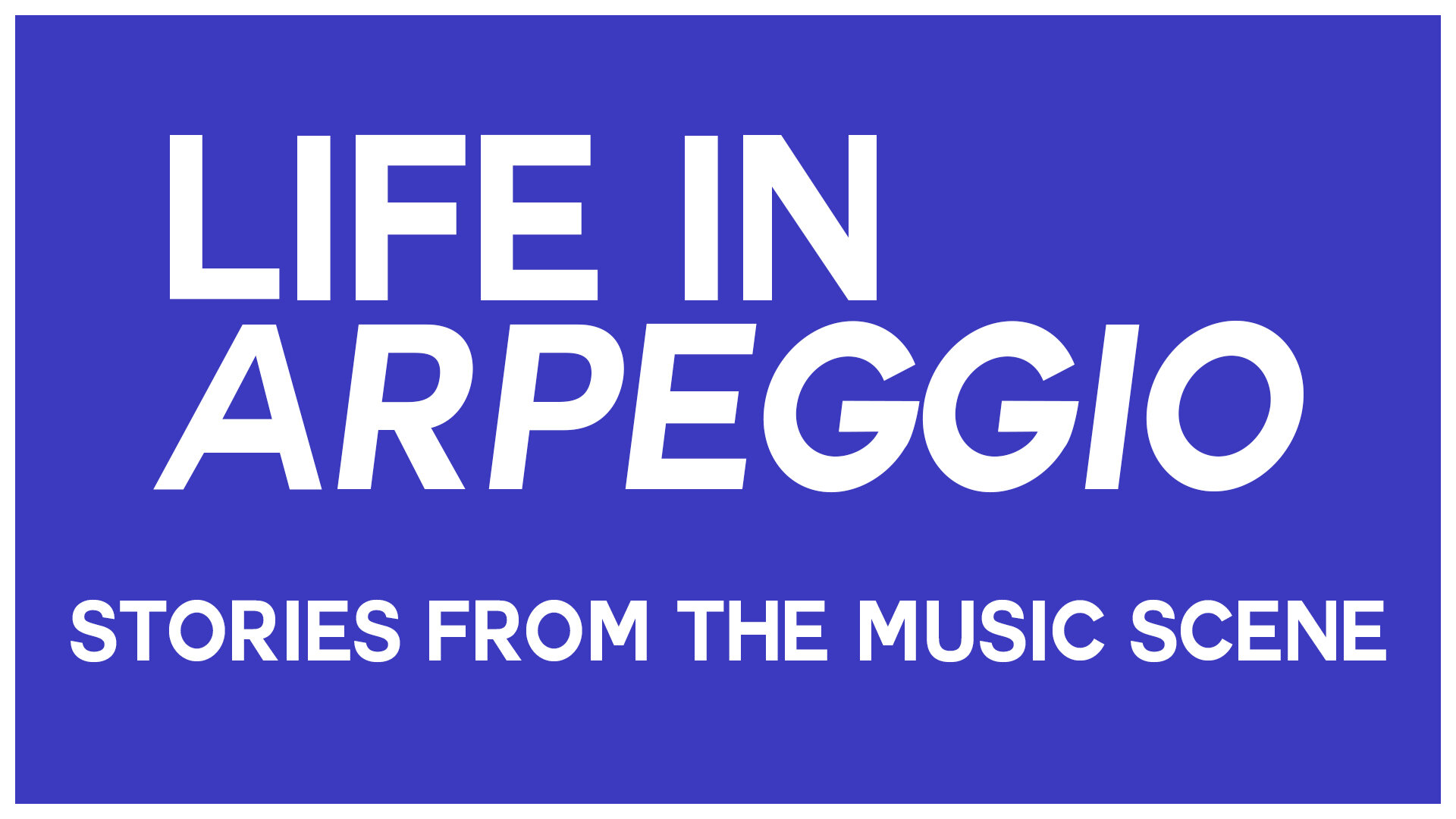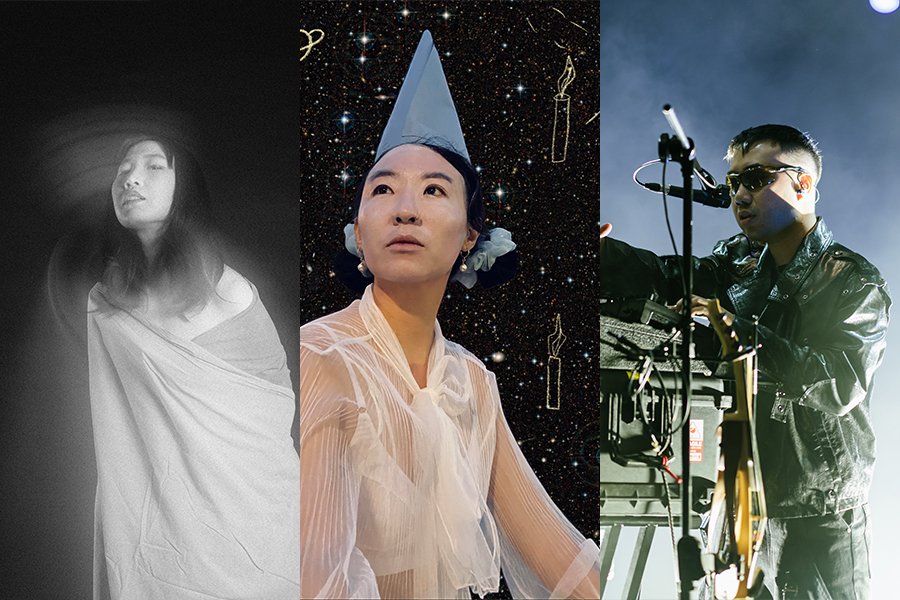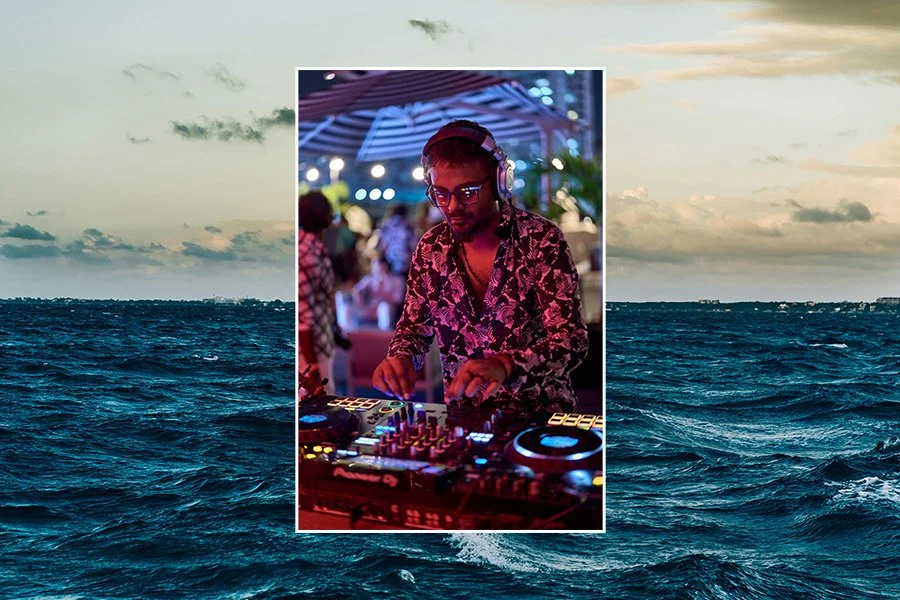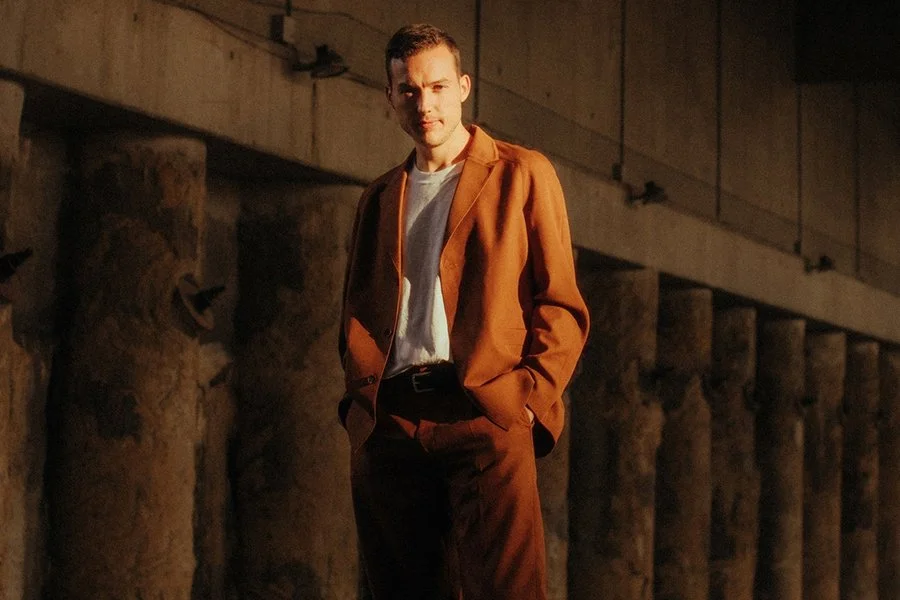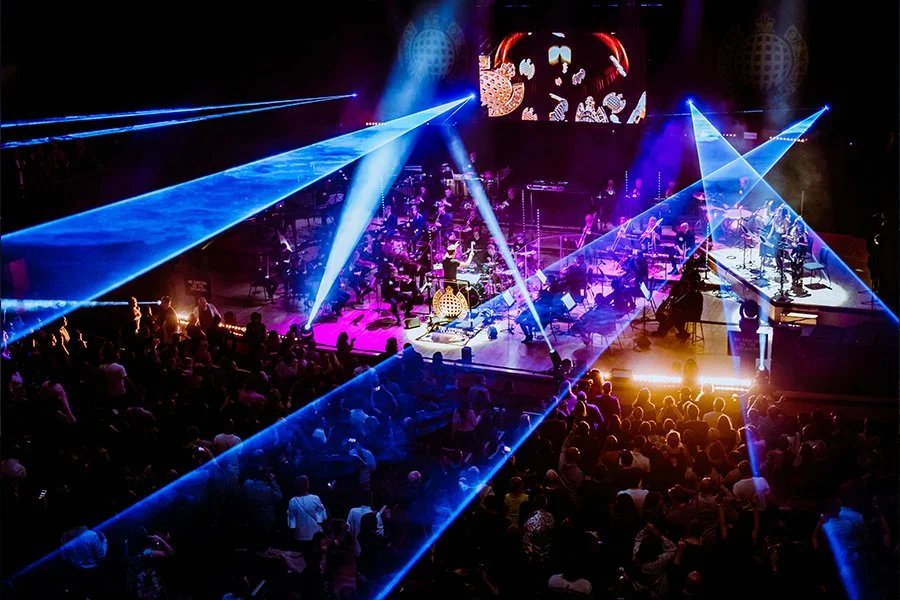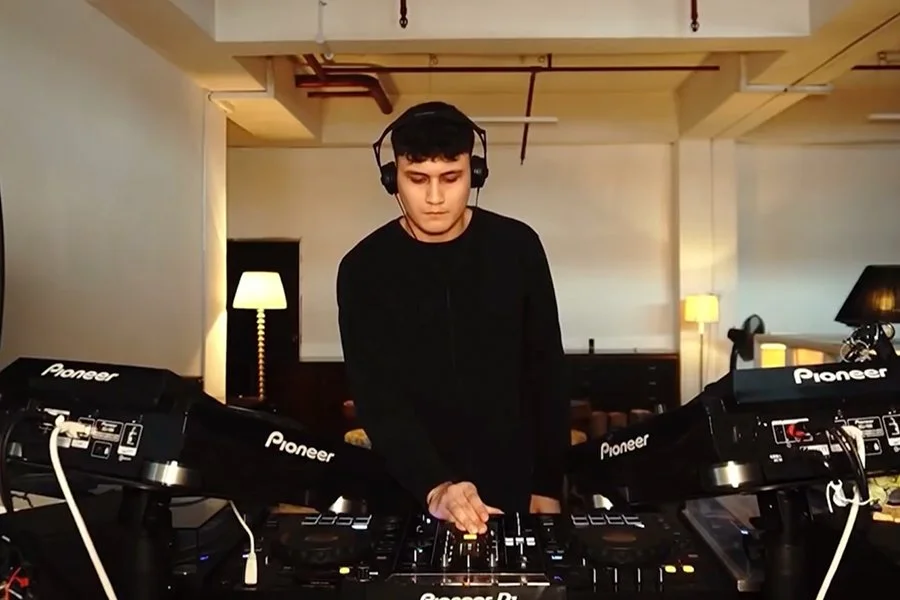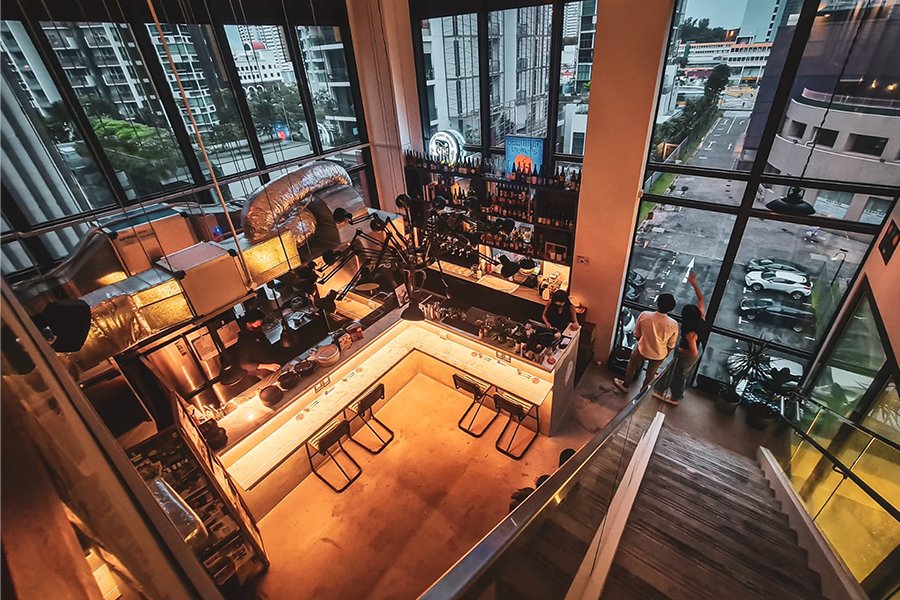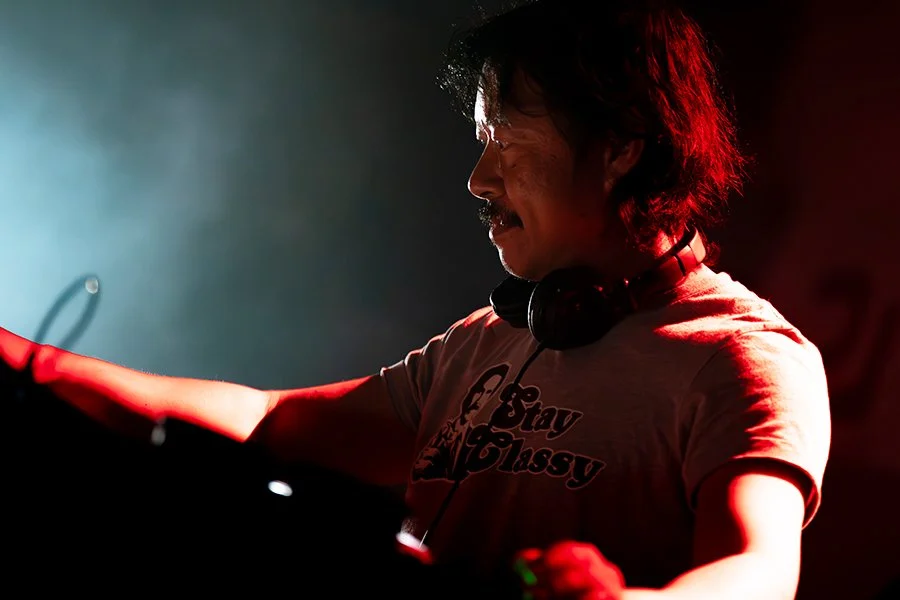Flow Of His Own: Singer-Rapper yams Takes On The Phenomenon Of Dreaming
What are dreams made of? yams navigates the spectrum with his distinctive songwriting (Credit: Courtesy of yams)
The act of songwriting can be a potent form of weaponry used to address a creator’s inner vulnerabilities. For some, songwriting can resemble a sword, striking down demons that linger. While for others, it’s more of a shield, assembling a barrier to protect its author from more harm. For yams, his motivation for songwriting is neither to fend off nor build walls, but to perceive it more like a shovel, digging deeper into suppressed truths to understand himself better. In that regard, yams holds his musical exploration close to his heart, becoming stronger and more compelling with each release.
Despite being tethered to heavy subject matter – yams has confessed using music as an outlet after his mother’s abandonment and father’s admission to a mental hospital – the singer-songwriter applies a lissom approach to his songcraft. This is a storyteller who can sing with gravitas, no doubt, but it is in his rap-styled delivery where he shakes off the sombreness. Toying with loose wordplay and capricious phonetical rhythms, yams governs his own flow much like the freedom of a spoken word poet, full of conviction and magnetism.
His musical choices are just as omnidirectional as his lyrical bearing, complementing his erraticism with a playful production array. You can hear yams bouncing off prickly trap percussions, manoeuvring through downcast piano loops, laying soliloquies atop choppy guitar riffs, or even taking it to church with gospelly, Hammond-hued organs. The lack of genre compartmentalisation is something yams has turned to his advantage, letting him chisel out whatever narrative he envisions.
In a year filled with uncertainty and lost journeys, yams is releasing a new series of anecdotes in his full album titled day/dreams. The concept album – which follows a glowing string of singles and his 2020 EP, Inconsistent – is a vehicle for the expressive artiste to scrutinise the societal notion of dreaming, and how he plays a role in it. Unpacking this next endeavour with a healthy imagination, yams reveals more in this interview.
“Songwriting helps me with excavation.” (Credit: Ines Toa)
It’s crystal clear that you latch deeply personal anecdotes onto your songwriting. Is songwriting your way of coping with demons and buried emotions?
I think songwriting, and art-making in general, is definitely one of the main ways that I process my emotions and experiences deeply. This wasn’t always the case. It started with a creative writing class I took in college (taught by wonderful poet, Lawrence Ypil), which forced me to confront many of my buried traumas. Songwriting helps me with excavation.
Do you think you’re most honest through your music, or are you this open in person as well?
Funnily enough, I always thought of myself as an open person but I’ve been repeatedly told over the years that I can come off as quite private. I would describe myself as an open book, but you have to flip the pages to learn things. I do think that I am most honest through my music. Sometimes, I feel like I can only truly share and even only begin to comprehend what I’m feeling through the songs I write.
“I only began writing rap in late 2018, and I think I’ve grown a lot in terms of finding my own ‘voice’ since then.” (Credit: Abel Khoo & Dynn Othman)
As opposed to songs that come from stories you’ve experienced or observed first-hand, have you ever tried penning pieces based on fictional, made-up scenarios?
Aha, great question. That’s actually an area that I’m very keen on working on. I’ve rarely written ‘fictional’ songs before, but I very much want to train myself to become a talented storyteller, like Frank Ocean does on his record, Channel Orange.
How did you first embark on the musician’s route? Did you have previous projects before being a solo singer-songwriter?
I was in a few rock bands growing up. I think I was always drawn to music, and the feeling of connection it tends to create. I only pivoted to the singer-songwriter stuff a couple years back! I really miss playing in a band. Writing songs for myself is fun enough, but I miss the energy and resonance that springs from playing music with others.
A standout quality of your songs is your smooth wordplay and spoken flow that resembles the captivating delivery of rappers. How did you refine your personal ‘rap’ style?
Honestly, I’m still a total novice at rap. I only began writing rap in late 2018, and I think I’ve grown a lot in terms of finding my own ‘voice’ since then; but I still have a really long way to go! I base my ‘flow’ both on artistes I really enjoy as well as my own personal tendencies. This part is a bit hard to explain. It’s been interesting trying out different flows and techniques, and figuring out which my mouth and tongue work with best. We all speak in our own unique way, and an authentic voice is something I’ve tried to work on quite a bit.
“I am often drawn to those that sound a bit more… unique, or strange? I like things that sound weird.” (Credit: Abel Khoo & Dynn Othman)
How much does hip-hop influence your artistry? Any personal heroes or heroines?
I think my biggest influences are all hip-hop and alternative r&b artists. I feel like this is kind of basic, but Mac Miller, Frank Ocean and Tyler the Creator are three musicians I would say I draw a lot of inspiration from. All three of them really stood out to me in the alternative forms of masculinity they seemed to present through their music, as well as their fearlessness in demonstrating vulnerability.
As a producer, what type of sounds do you gravitate towards?
I wish I could answer this question better. It’s a process of trial and error for sure. I spend a lot of time listening to samples and am often drawn to those that sound a bit more… unique, or strange? I like things that sound weird.
Can you share more about your upcoming full-length? Is there an underlying theme or message that runs through it?
I actually wrote the album, day/dreams, as my final year thesis for my undergraduate programme. I started off by asking myself a few questions: What does it mean to make Singaporean music? What does it mean to be an artist in Singapore? And what, if anything, would a Singaporean album sound like? I knew I wanted to write an album that was centered both on a national narrative as well as a personal narrative.
I ended up being very drawn to this idea of ‘dreaming’, and the different forms that it could take – a personal dream one might have, dreams that come at night from which you can’t escape, or even a nation’s dream. The album tries to tackle what it might feel like to dream; as a Singaporean, or as a young person caught between moments or caught between dreams and reality.
“Something I’m happy about with the album is its diversity of genres and sounds that you can find within it.” (Credit: Abel Khoo & Dynn Othman)
That’s deep. And what does the new album represent for you in terms of artistic and personal growth?
I’m quite happy with the narratives that I’ve managed to piece together throughout the album. It was definitely cathartic to write from a raw, vulnerable place and to transform that into a piece of music. Artistically, I’m still growing. I’m figuring out what elements of an album matter to me; my strengths and weaknesses; the things that call out to me. Something I’m happy about with the album is its diversity of genres and sounds that you can find within it. I’ve always been interested in different genres of music, and it’s always been a challenge to whittle those down into a specific one that I should stick with. Writing this album, which had space for genres from indie-pop and alternative hip-hop to plain old rock & roll was quite a release in that sense.
How would you compare this new record with your Inconsistent EP released in 2020? What was your headspace when putting that collection together?
In some ways, that EP was a testing ground for the album. It was sort of a mini-album, or… an earlier version of the album. It involves a lot of similar themes as the album, and I think the EP was my first attempt at trying to create a loose narrative through a collection of songs. I had a lot of fun planting things like little effects or lyrical references throughout the EP that referenced other tracks within the EP, and that was definitely something I built on in the album.
But I think the EP was much more just a ‘collection of songs’ than the album. For the EP, when I began putting it together, it was more a process of “Oh, I have these three or four songs that seem to be thematically related somehow, so how do I fill in the gaps and put something together that’s coherent?”. Whereas for the album, it was an entirely different approach from the get-go.
Do you anticipate your music being a source of comfort for others with difficult backgrounds; to help them get out of tough spots like it did for you?
I would certainly hope so! I think that’s something that really motivates me as an artist or musician – the idea that, by expressing these feelings through my songs, someone might find some sort of solace or resonance. The same solace or resonance that helped me at my lowest points.
I think something I’m hoping to do with the album is also to find resonance not just in people with difficult backgrounds, but people of all sorts who are struggling with their identities, and struggling with sentiments of belonging and home. As a young artist in Singapore, that’s definitely something that I’ve experienced myself – and it is quite a lonesome feeling – and I would hope that the album can provide some comfort to those of us who feel that way.
“I think something I’m hoping to do with the album is to find resonance not just in people with difficult backgrounds, but people of all sorts who are struggling with their identities.” (Credit: Ines Toa)
And to end on a light note, tell us a bit more about yourself when you’re not making music as yams.
I have recently adopted a kitten named Mooncake! I gave him a shower before I sat down to tackle these questions and I’ve had to wrestle him off the keyboard several times. He’s a lovable fatso.
Mooncake aside, I’m currently working as a freelance artist, and I do part-time work for an arts charity as well. Apart from music, most of the art I make is sound-related: composition, engineering, etc. For instance, I recently collaborated with Yanyun Chen, a Singaporean visual artist, on a short-film titled Hindsight 20/20 (Mooncake also features in this film).
I love supper and sleep at odd hours. If you see a long-haired, earring-wearing guy eating maggi goreng, be sure to say hi! :-)
(Credit: yams)
You can listen to yams’ upcoming album, day/dreams, on his Spotify page. Follow his Facebook and Instagram page to stay updated with his activities.
